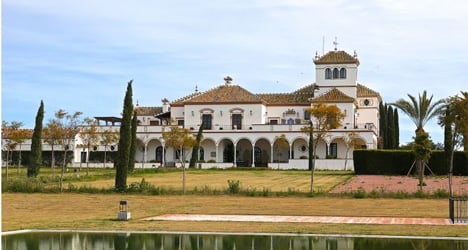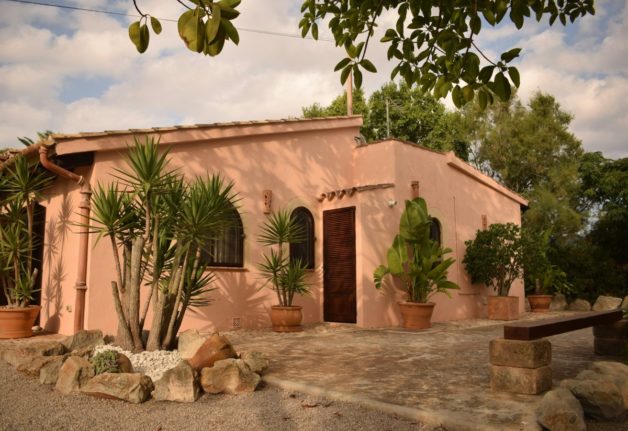Heiress Joanne Hearst Castro bought the property in the municipality of Gerena, just outside Seville, in 1984.
She bred horses there for 27 years until she died in 2011, aged 70, according to newspaper Canarias7.
The circumstances of her passing bore an odd resemblance to those of the character in the 1941 movie Citizen Kane that was based on her grandfather .
She was discovered dead by a servant who had gone into her bedroom to wake her up.
Joanne, or Doña Juana, as she was known to her neighbours, inherited part of her grandfather's vast wealth through her father, John.
He worked as an executive at the Hearst Corporation, which survives to this day.
Joanne's grandfather William Randolph Hurst built the United States' largest newspaper chain and was elected to the US House of Representatives.
His newspapers pioneered a new, sensationalist style of journalism, the influence of which can still be seen today.
Ironically, given the final destination of some of his wealth, Hearst's 'yellow journalism' has been blamed by some historians for pushing the US into a war with Spain in 1898.
His life was loosely adapted and memorably directed and acted by Orson Welles in the Oscar-winning 1941 movie Citizen Kane.
The film is often voted by fans and critics as as the greatest ever made.
Doña Juana maintained an air of mystery in Gerena despite being active in the local community.
She made friends, employed local people, paid for the town's Christmas lights and offered a €3,000 prize to the best-decorated house.
She even hired a local band to play each spring at the birthday party of her own granddaughter.
Although her home was in Spain, she did not spend all of her time at the 152-hectare (375-acre) estate – which she named The Whim.
She also had properties in Barbados and Miami, and was initially attracted to the estate because of its transport links and proximity to Seville airport.
After her death the property was put on the market for €6.5 million but eventually sold for €3.9 million to a Mexican businessman said to have "many businesses in Mexico and Spain".



 Please whitelist us to continue reading.
Please whitelist us to continue reading.
Member comments